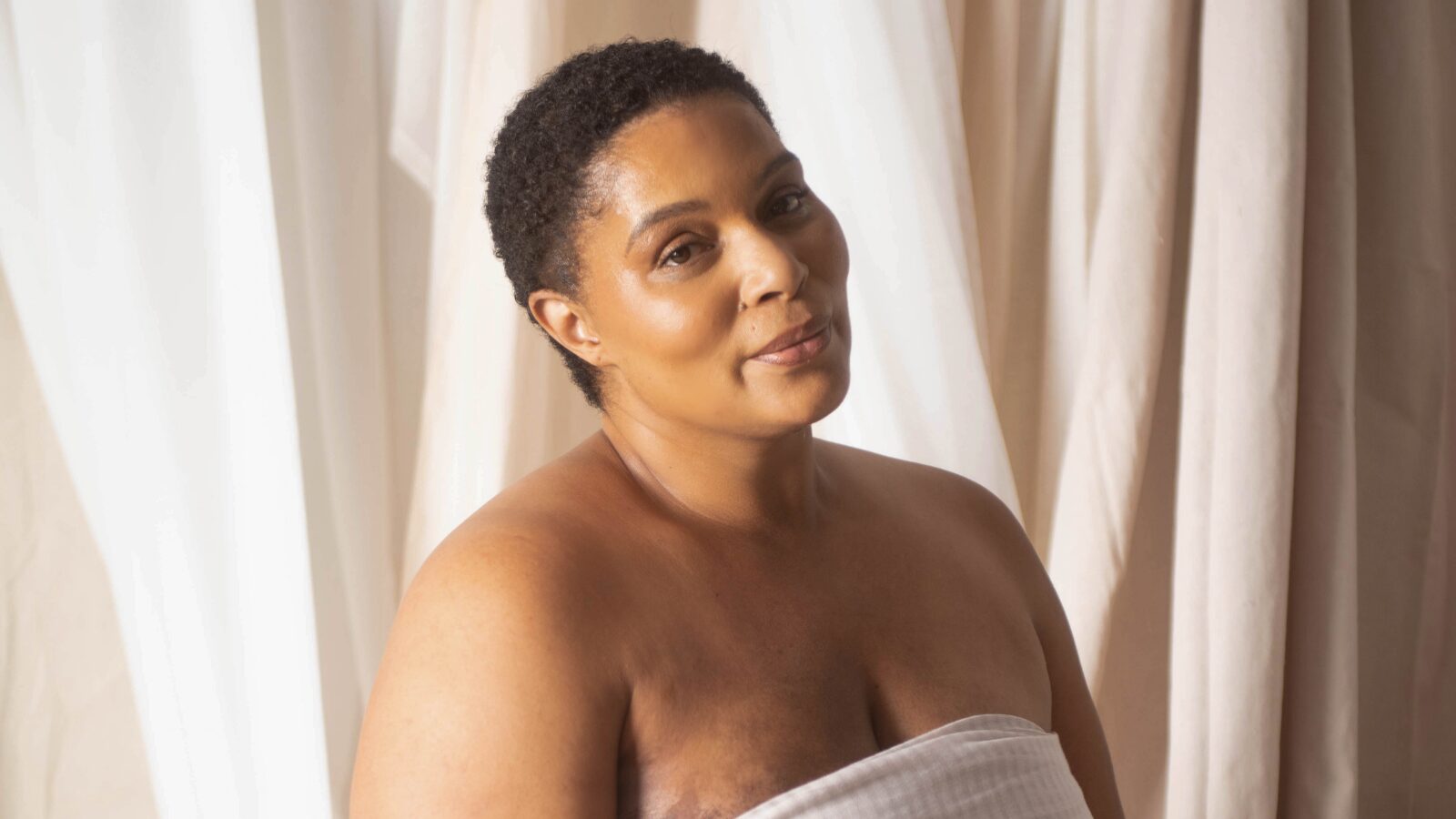Meet Frankie, Uncovered
5 MINS to read

When I was diagnosed, I was in a state of shock, and the weight of my diagnosis really hit me. I have lost all the things that made me who I was, my independence, my job, my goals, all these things I wanted to do for myself. The reality is I have to rethink what I can do now. My mental health is struggling now more than ever because I’m starting to feel what this disease actually does to you. It just robs you of so much in your life, and I hate that.
I want people of colour to remember you don’t have to do this alone, hide it or keep it a secret. You shouldn’t feel ashamed. This diagnosis changes who you are as a person, and it makes you re-evaluate things. Take whatever lesson, blessing or whatever you want to take from it. Take it and let it transform you, because it will transform you into something more beautiful, more raw. Even though it is hard, I feel so much freer now than I did before. Why would you hide that experience? Not only are you helping change yourself, but you don’t know who else you’re helping as well. Our health should not be something that we put on the back-burner and hide in secret. We should be putting it out there, we should be setting the example to others that our health matters.
“Why are we condemning our loved ones for speaking their truth?”
As a Jamaican-Canadian, this is a cultural barrier I see in the Caribbean community – the need to keep everything a secret. The moment I announced I was diagnosed, I was met with comments from family asking me why I was sharing my experience publicly and that I should have kept it to myself. When my doctor asked me about my family history, I said there was none that I knew of. When I actually looked and asked my family, I realized cancer was extremely present in my family history and ancestry. I would not have known that because it was never discussed. So many people are afraid to speak up about what they’re going through, scared they will be condemned. Why are we condemning our loved ones for speaking their truth? We only seem to talk about the things we seem to be doing that we think others would perceive as positive or good, and we’re not talking about when things are hard.
Connected to that, when my brother passed away over 12 years ago, I didn’t cry. But why not? Why am I so conditioned that I don’t have any feeling or emotion? I notice my younger daughter has been the same since finding out about my diagnosis. Am I just conditioning her to be the way I am? What are we teaching them? We say we want our daughters to be strong women, but in what way? Being a strong woman is me acknowledging that I’m not having the greatest day today. It takes a lot to be vulnerable and that is where your strengths lie, is when you can really lay bare everything that’s happening and name what you are dealing with.
What would help me feel more seen in the cancer care community is having more women of colour that I can identify with and also having adequate access to information. I discovered my lump when I was living in a small town that is not as diverse as a bigger city like Toronto. There were no other women of colour at any point, even though there were other Black women in this town. I also didn’t receive much support as a Black woman from my healthcare team. The social worker at my son’s school was the one who offered and put me in contact with support groups — not the hospital. I would have loved to know there are places I could have gone to as a Black woman for support early on in my diagnosis. Additionally, a lot of the time my healthcare team hasn’t explained to me what is happening to my body, why I’m on a certain treatment, or how I could be preparing for surgeries, etc. There is an assumption that I know these things.
“People don’t understand the cost of having metastatic breast cancer”
People don’t understand the cost of having metastatic breast cancer. It’s the things you don’t think of, like parking. Women of colour need to know where they can receive support because there are few options and this is a barrier. Just because we have a universal healthcare system in Canada doesn’t mean there aren’t extra costs in the thousands with a diagnosis like this. I’ve had to cancel appointments and delay medication prescriptions because of it. A lot of the metastatic breast cancer drugs are not covered by our healthcare system. When I look at how much my medication costs, I wonder and worry that if I have to take this for the rest of my life, how will I pay for it if I’m not working?
This is all why it was important for me to be a part of this project, because we need to have a better visual of what it means to be diagnosed with a disease like this. We often hear that “cancer doesn’t discriminate,” but at the same time, why am I not seeing women that look like me who are going through it too? I know they exist. I want to share my experiences as an offering to others, so they can at least know what I know and use that information as they wish because there isn’t enough information out there for us. — Frankie